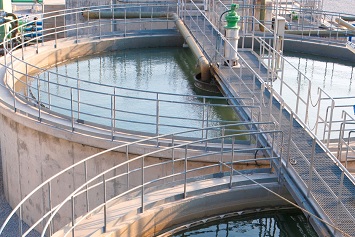Environmental protection has not proven to be a significant issue as the world grapples with the coronavirus (COVID-19) pandemic. One unexpected positive development is an improvement in air quality. At some point in the future, agencies, advocacy groups, and industrial organizations will likely make some use of data from satellite imagery showing less air pollution because of reduced travel and business activity. Another development, and one that is not positive and a more immediate concern, relates to the surge in use of disinfectant wipes and their disposal in toilet bowls. Environmental agencies around the country are exhorting the public not to flush these items because they do not readily decompose and can create blockages and other problems along the entire wastewater disposal system.

“Flushing wipes, paper towels and similar products down toilets will clog sewers and cause backups and overflows at wastewater treatment facilities, creating an additional public health risk in the midst of the coronavirus pandemic,” says the California’s State Water Board. “Even wipes labeled ‘flushable’ will clog pipes and interfere with sewage collection and treatment throughout the state.”
The Water Board notes that wastewater treatment facilities around the state are reporting issues with their sewer management collection systems. These facilities are asking state residents to not discard wipes in the toilet, but instead to throw them in the trash to avoid backups and overflow. A majority of urban centers are on centralized sewage collection systems and depend on gravity and enough water flow to move along human waste and biodegradable toilet paper. The systems were not designed for individual nylon wipes and paper towels.
Operator Safety
California’s Amador County has asked the public to consider the integrity of the sewer system, as well as the health and safety of all wastewater operators before flushing. Workers who must unclog pumps or other parts of the wastewater system risk exposure to raw sewage and harmful pathogens.
The Rhode Island Department of Environmental Management (DEM) notes that the town of Narragansett recently reported the failure of two pumps at one of its sewer pumping stations. The damage resulted from a buildup of wipes clogging the inner core of both pumps.
“While the swift action of town wastewater staff prevented a release of sewage to the environment, the cost of responding to the failure, setting up temporary bypass systems, and eventual repairs is estimated at $7,300,” says the DEM.
The DEM has asked retailers to post signs alerting customers to not flush various wipes, even if the product is labeled as “flushable.” Although labeled as “flushable,” most wipes are made with fine plastic mesh that does not break down in water as toilet paper does.
Residential Damage, as Well
“When the wrong thing is flushed, results can include costly back-ups on your own property or cause problems on our sewer and water treatment system,” states the Austin, Texas, Water Department. “Rags, debris and wipes are the biggest sources of sewer overflows and backups.”
Austin offers a more comprehensive list of items that should never be flushed:
- Disposable wipes (even if marked “flushable”)
- Feminine hygiene products
- Paper towels
- Dental floss
- Face-cleaning pads
- Cotton balls or ear swabs
- Condoms
- Diapers
- Cooking grease
- Pills
“Toilets are meant for only one activity, and you know what we are talking about!” says the city.
